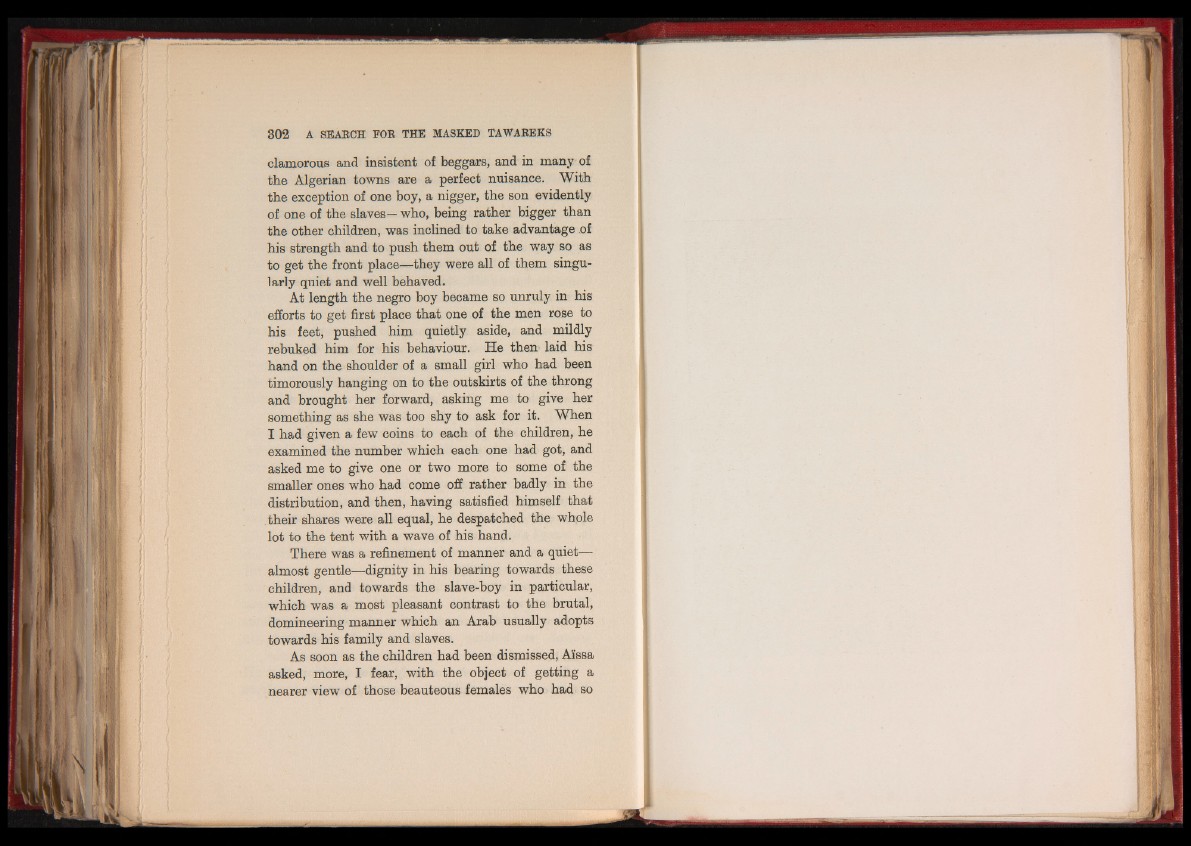
clamorous and insistent of beggars, and in many of
the Algerian towns are a perfect nuisance. With
the exception of one boy, a nigger, the son evidently
of one of the slaves— who, being rather bigger than
the other children, was inclined to take advantage of
his strength and to push them out of the way so as
to get the front place—they were all of them singularly
quiet and well behaved.
At length the negro boy became so unruly in his
efforts to get first place that one of the men rose to
his feet, pushed him quietly aside, and mildly
rebuked him for his behaviour. He then laid his
hand on the shoulder of a small girl who had been
timorously hanging on to the outskirts of the throng
and brought her forward, asking me to give her
something as she was too shy to ask for it. When
I had given a few coins to each of the children, he
examined the number which each one had got, and
asked me to give one or two more to some of the
smaller ones who had come off rather badly in the
distribution, and then, having satisfied himself that
their shares were all equal, he despatched the whole
lot to the tent with a wave of his hand.
There was a refinement of manner and a quiet—
almost gentle—dignity in his bearing towards these
children, and towards the slave-boy in particular,
which was a most pleasant contrast to the brutal,
domineering manner which an Arab usually adopts
towards his family and slaves.
As soon as the children had been dismissed, Aissa
asked, more, I fear, with the object of getting a
nearer view of those beauteous females who had so